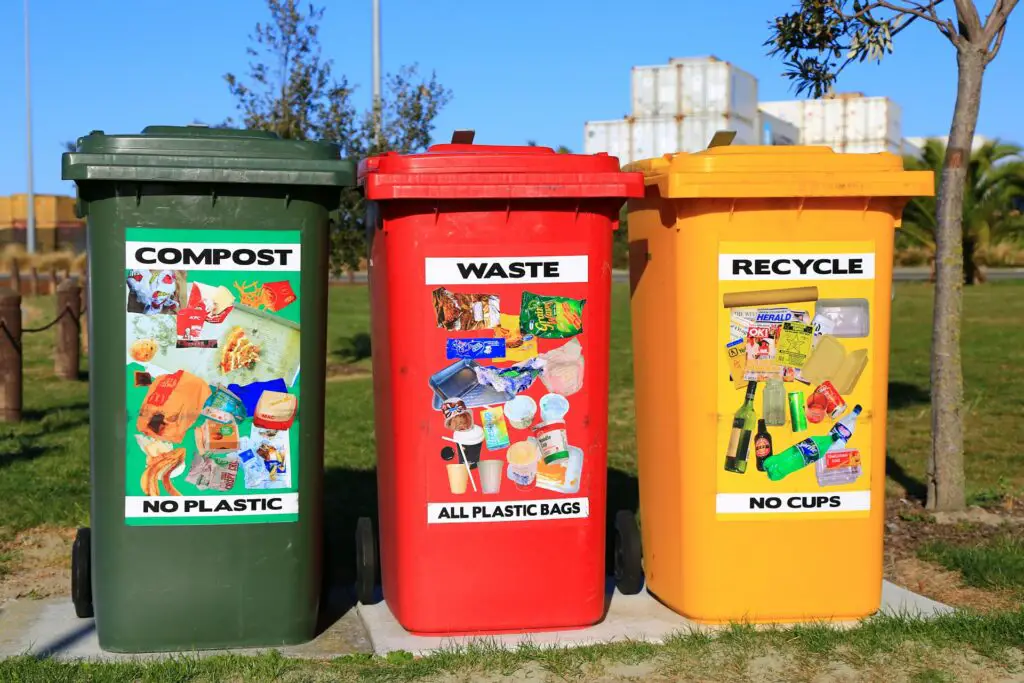Disposing of food waste properly is essential for maintaining hygiene in your kitchen, reducing pests, and minimizing environmental impact. Whether it’s leftovers that have gone bad or food scraps from cooking, proper disposal can contribute significantly to waste reduction and sustainability efforts. Here’s a comprehensive guide on how to dispose of food in an environmentally friendly and efficient manner.
Composting
Composting is one of the most environmentally friendly methods of disposing of food waste.
It turns your food scraps into nutrient-rich soil that can be used to fertilize plants.
How to Start: Begin with a compost bin in your backyard or use a compost service if you live in an urban area without space for a bin.
What to Compost: Most fruit and vegetable scraps, coffee grounds, eggshells, and non-coated paper products can be composted. Avoid composting meat, dairy, and oils, as they can attract pests and create odor problems.
In-Sink Garbage Disposal
Many homes are equipped with garbage disposals in the kitchen sink. This can be an efficient way to dispose of certain types of food waste.
Usage Tips: Always run cold water while using the disposal to help break down food waste and prevent clogs. Avoid putting hard, fibrous, or greasy items down the disposal as these can damage the unit or block your pipes.
Feed Animals
Some food scraps can be used to feed pets or even farm animals, providing a secondary use for your waste.
Considerations: Ensure that the food is safe and suitable for the animal. Foods that are toxic to pets or livestock should be avoided.
Use Municipal Green Bin Programs
Many municipalities offer green bin programs where organic waste is collected separately from other household waste.
How to Participate: Check with your local waste management authority for guidelines on what can be included in your green bin and how to properly prepare your organic waste for pickup.
Donate Unused Food
Before food goes bad, consider donating it to a local food bank or shelter. This not only reduces waste but also helps those in need.
Best Practices: Ensure the food is still within its use-by date and hasn’t been opened or tampered with.
Creative Reuse in Cooking
Before disposing of food scraps, consider if they can be used creatively in cooking. For example, vegetable peels can be used to make stock, and stale bread can be turned into breadcrumbs.
Proper Disposal in Trash
When all else fails, and the food waste cannot be reused or recycled, ensure it’s disposed of in the trash in a responsible manner.
Minimize Odor and Pests: Keep food waste in a sealed bag or container to minimize odors and avoid attracting pests.
Proper food disposal is a crucial part of reducing household waste and its environmental impact. By employing methods like composting, using garbage disposals wisely, feeding animals, participating in green bin programs, donating unused food, getting creative with cooking, and responsibly using the trash, we can significantly cut down on the amount of food waste that ends up in landfills. This not only helps in keeping our surroundings clean and pest-free but also contributes to a more sustainable and environmentally friendly lifestyle.
Reducing Food Waste at the Source
While the focus of this guide is on disposal, it’s essential to address the root of the issue by reducing food waste at its source. This can significantly minimize the need for disposal and contribute to a more sustainable approach to food consumption.
Plan Your Meals: By carefully planning your meals and shopping accordingly, you can buy only what you need, reducing the likelihood of food going unused and becoming waste.
Store Food Properly: Understanding how to store different types of food can extend their shelf life, preventing them from spoiling prematurely.
Understand Food Labels: Knowing the difference between “use-by,” “sell-by,” and “best before” dates can help you use food while it’s still good, reducing waste.
Educate Others on Food Waste Management
Raising awareness about the importance of food waste management can amplify the impact of individual efforts. Educating your family, friends, and community on the importance of minimizing food waste and proper disposal methods can lead to broader changes in attitudes and behaviors towards food consumption and waste.
Community Programs: Participate in or organize community workshops on composting and sustainable food waste management.
Schools and Educational Institutions: Encourage the inclusion of food sustainability topics in educational curriculums to instill the importance of food waste management in younger generations.
Advocate for Policy Changes
Supporting policies that aim to reduce food waste and improve waste management infrastructure can lead to significant changes at the municipal or national level. Advocacy can be as simple as voting for initiatives that promote sustainability or as involved as campaigning for laws that require businesses to donate unsold food.
Support Food Recovery Programs: Advocating for and supporting food recovery programs that redistribute excess food from businesses to those in need can help reduce waste while addressing food insecurity.
Sustainable Business Practices: Encourage local businesses to adopt sustainable practices, such as offering discounts for purchasing unsold items or implementing more efficient inventory management to reduce waste.
Effective food disposal and waste reduction require a multifaceted approach that includes not just proper disposal techniques but also measures to minimize waste production and promote sustainability at every step of the food lifecycle. By incorporating these practices into our daily lives and advocating for broader change, individuals can play a crucial role in reducing the environmental impact of food waste. It’s about making conscious choices, from the point of purchase to the moment of disposal, and seeking innovative ways to repurpose or recycle food waste. Together, through these efforts, we can work towards a more sustainable and waste-conscious society.




